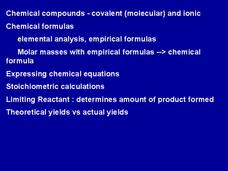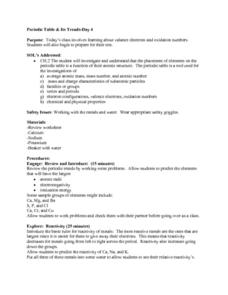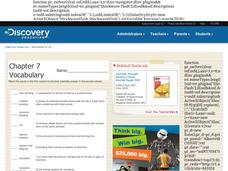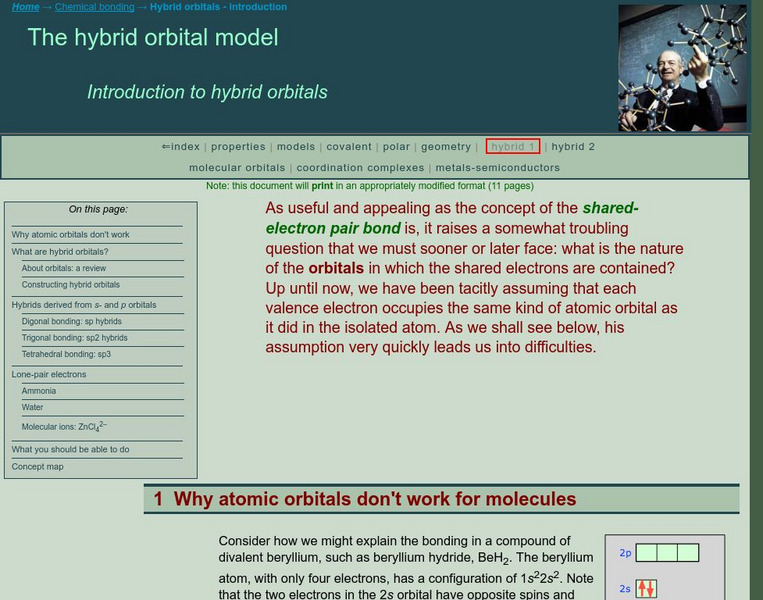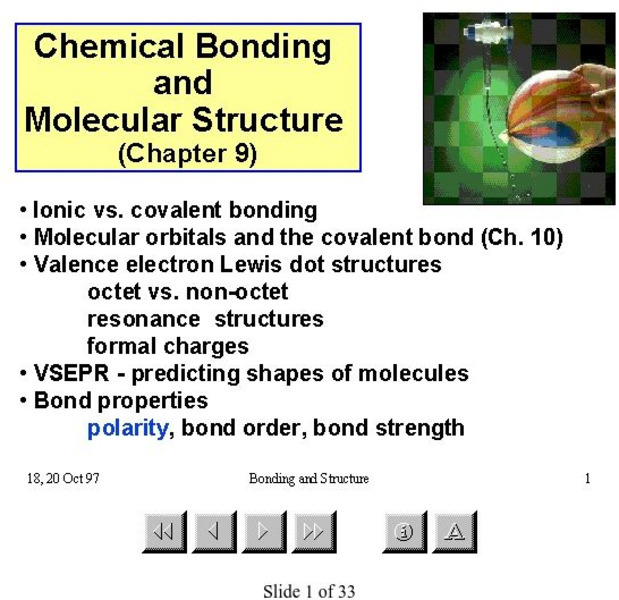Curated OER
History of the Atom
This is a tremendous overview of the tiny atom. Journey through the history of human understanding of this basic building block of matter. Examine each of the sub-atomic particles in detail: neutrons, protons, electrons, quarks. Peruse...
Curated OER
Review of Ionic and Covalent Compounds and Transitioning from Ionic to Covalent Compounds
Here is a unique assigment: compare and contrast ionic and covalent compounds in an extensive data table and then analyze Lewis dot structures in antoher. Three columns are to befilled in: "characteristic or feature," "applies to ionic...
Curated OER
Science Puzzlers, Twisters, and Teasers: Chemical Bonding
What a cute approach to chemical bonding! Atoms all have human names and are attending at a dance. Who will pair up with whom? By reading the characteristics, and not the element name, chemistry whizzes figure out the bonding pairs....
Curated OER
Chemical Formula Practice #1/Bonding Basics Practice Page
The first of two worksheets methodically prepares chemistry novices for naming polyatomic compounds. It begins by having them acknowledge the number of each atom contained in a molecule. Then learners list the valence electrons for a...
Curated OER
Periodic Table Notes: Determining # of Shells and Valence Electrons
Although the directions say to view a PowerPoint, it is not necessary in order to complete this assignment. Six fill in the blank questions survey the periodic table of elements. A chart follows in which, given the element symbol, young...
Curated OER
Why and How Atoms Combine
Here is a top-notch handout to supply your chemistry class with. It covers valence electrons, Lewis diagrams, the octet rule, and more! Technically it is less of a worksheet than a detailed explanation of these chemical bonding concepts....
Curated OER
Summary of Shapes of Molecules
Neatly organized and easy-to-read, this chart summarizes five different molecular shapes: linear, trigonal planar, tetrahedral, trigonal bipyramidal, and octahedral. It associates shape with electron pairs and atom arrangement, and it...
Curated OER
Chemical Compounds
Your young chemists will find these slides very informative. Groups and periods of the periodic table are labeled and described according to the charge. Comprehensive explanations of physical and chemical properties and how they relate...
Curated OER
Sample Midyear Examination (Chemistry and Biology)
A 12-page midterm exam sample can be given to young scientists in preparation for an exam. This particular installment is geared toward a class that delves into both ecology and chemistry concepts. There is no way to separate the 50...
Curated OER
Bhopal - Covalent Bonding
Using the chemicals that leaked in the Bhopal gas tragedy of 1984, chemists examine covalent bonds. Provide for them the chemical reactions and have them draw Lewis diagrams for the molecules involved. That's about all there is to the...
Curated OER
Periodic Table And Its Trends - Day 4
Guide your chemistry class through the periodic table so that they are able to identify atomic radii, electronegativity, and ionization energy. Give them three metals to place in water to observe reactivity. Teach them to write electron...
Curated OER
Lewis Structures
In this Lewis structures worksheet, students identify and describe what Lewis structures or dot diagrams are and how they illustrate the valence electrons in an outer shell. Then they use a periodic table to determine the numbers of...
Curated OER
Bonding Basics - Ionic Bonds
In this chemistry activity, students complete the chart for each of the listed elements, including the number of protons, electrons, and valence electrons. Then they complete each of the ionic bonds that follows.
Curated OER
Chapter 7 Vocabulary
In this online vocabulary activity, students match 14 definitions to the correct vocabulary term. Students may click the solution button to check answers.
American Chemical Society
Middle School Chemistry: Periodic Table and Energy Level Models
Students interpret the information given in the periodic table to describe the arrangement of electrons on the energy levels around an atom.
American Chemical Society
Middle School Chemistry: Energy Levels, Electrons, and Covalent Bonding
Students discover the concept that two atoms can attract and form a covalent bond.
Simon Fraser University
Chem1 Virtual Textbook: The Valence Bond Model
The General Chemistry Virtual Textbook, or Chem 1, is broken into several sections covering various aspects of topics related to chemistry. This section deals with hybrid orbitals and specifically the valence bond model.
Sophia Learning
Sophia: Ionization Energy: Lesson 1
This lesson will define ionization energy. It is 1 of 3 in the series titled "Ionization Energy."
Sophia Learning
Sophia: Identifying Valence Electrons
A slide show presentation which demonstrates how to identify the number of valence electrons an element has based on its location on the periodic table.
Sophia Learning
Sophia: Valence Electrons
During this exercise, practice finding the number of valence electrons in an element. [1:22]
Frostburg State University
General Chemistry Online: The Periodic Table
This is a teacher's companion guide with lesson plans for the periodic table. It includes learning objectives, lecture notes, links to related sites, answers to frequently asked questions, and a glossary of related terms.
McMaster University
Mc Master University: Molecular Structure
This PowerPoint presentation features 33 slides that explain chemical bonding and molecular shape.
Other
Web Chem: Bonding: Valence and Core Electrons
This site from WebChem contains information on the subject of bonding with an emphasis on valence and core electrons.
Sophia Learning
Sophia: Identifying Valence Electrons: Lesson 3
This lesson will explain how to identify the number of valence electrons an element has based on its position on the periodic table. It is 3 of 3 in the series titled "Identifying Valence Electrons."









